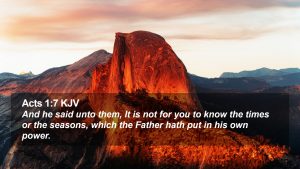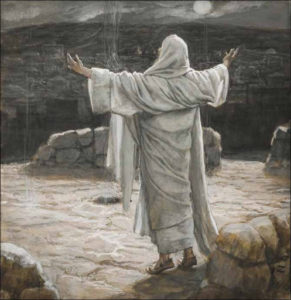 Today’s feast is somehow mysterious…
Today’s feast is somehow mysterious…
In the 1st reading, we are told that, risen from the dead, Jesus has been appearing to his apostles a number of times (Acts 1:1-11).
A few verses later, we see him disappearing from their sight.
Appearing, disappearing – these two words bring to mind the two realities of presence and absence.
But, more still, they remind us of the two ways of understanding: through seeing and through perceiving.
Personally, I see this feast of the Ascension as an invitation to a new way of recognizing God among us.
It is no longer a presence that our eyes can see but a presence perceived by our hearts.
Our ‘vision’ of God no longer depends on our eyesight but on… our faith!
We no longer rely on what the eyes of our body can ascertain but on what God’s Spirit reveals to us in the depths of ourselves.
This reflection started with referring to this feast as ‘mysterious’.
All too often, people interpret a mystery as something we cannot understand.
This is a short-sighted explanation.
A mystery is rather something so great and so wonderful that we have never finished discovering it!
Exactly as God’s presence with us is!
God’s promise is clear: “Know that I am with you always, yes, to the end of time” (Matthew 28:20).
No if… but… perhaps…
Purely and simply Jesus’ promise, God’s promise!
Note: And another reflection, on a different theme, is available in French at: https://image-i-nations.com/fete-de-lascension-annee-c-2022/
Source: Image: Scripture Images

 “It is not for you to know the times or dates the Father
“It is not for you to know the times or dates the Father Et voila que tout change soudainement!
Et voila que tout change soudainement! The gospel texts have much for us to learn, to reflect upon, to be inspired and to be challenged by.
The gospel texts have much for us to learn, to reflect upon, to be inspired and to be challenged by. “He is under the influence…” This expression has come to be used for someone “driving under the influence of alcohol or drugs.”
“He is under the influence…” This expression has come to be used for someone “driving under the influence of alcohol or drugs.” We repeat the words every time we recite the Creed : « He ascended to heaven…” It is possible that our lips pronounce the words without our giving too much attention to what we speak. But this is what our celebration is about today. The 1st reading (Acts 1:1-11) tells us: “He (Christ) was lifted up while they looked on, and a cloud took him from their sight.”
We repeat the words every time we recite the Creed : « He ascended to heaven…” It is possible that our lips pronounce the words without our giving too much attention to what we speak. But this is what our celebration is about today. The 1st reading (Acts 1:1-11) tells us: “He (Christ) was lifted up while they looked on, and a cloud took him from their sight.”